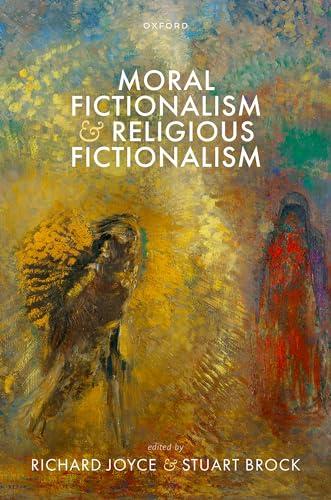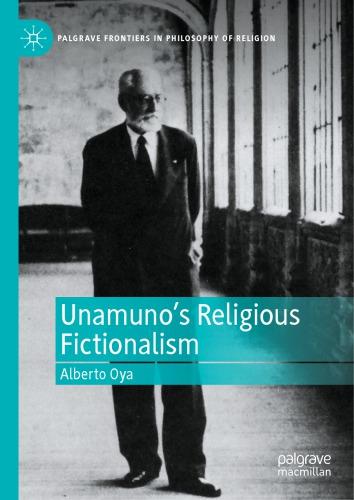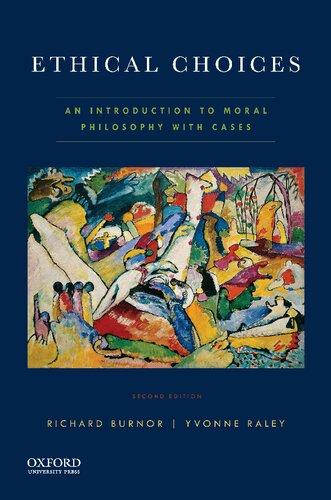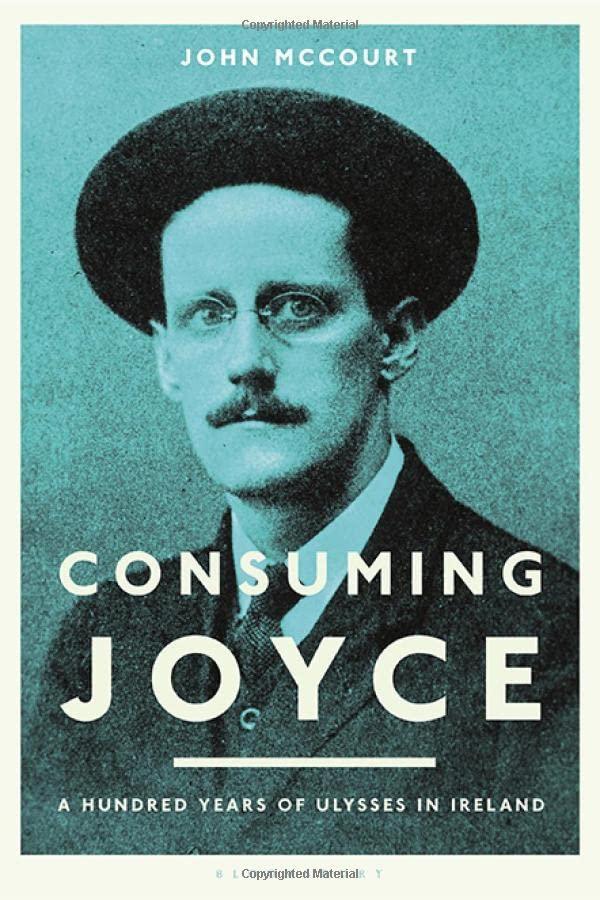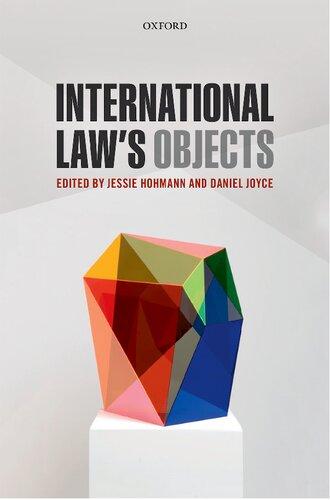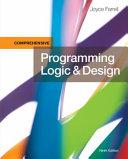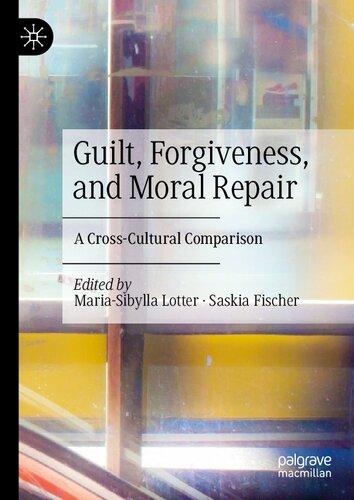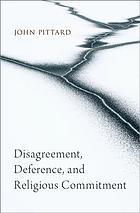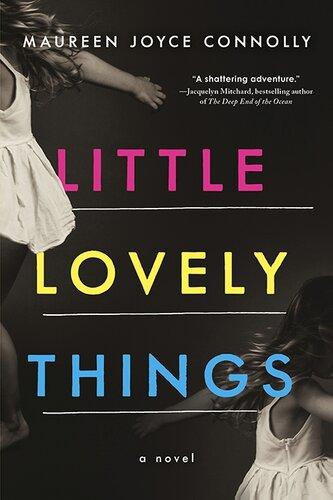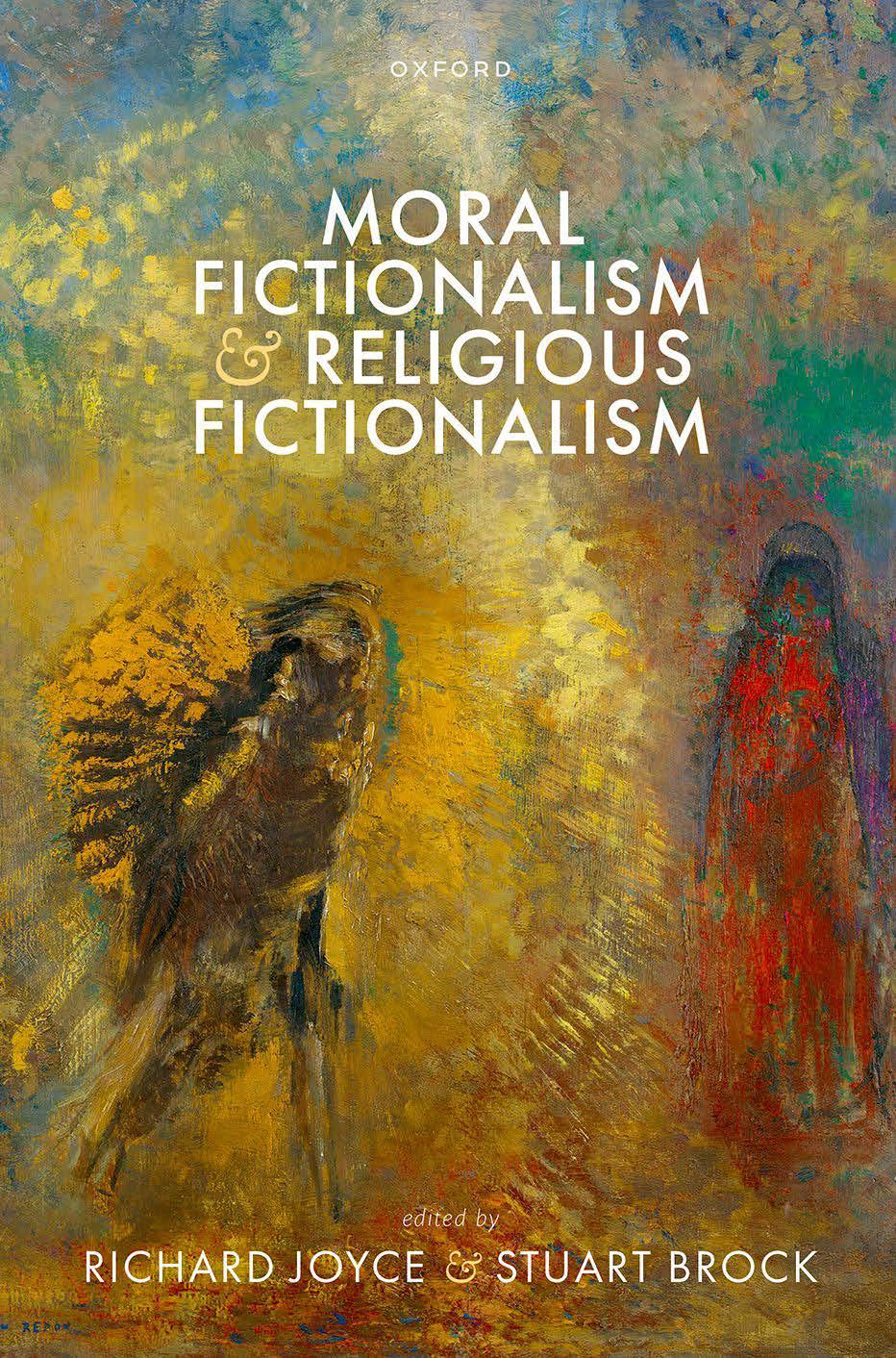Introduction
Fictionalism—Moral, Religious, Hermeneutic, Revolutionary
Richard Joyce
1. What is Fictionalism?
Much philosophical activity is born of an anxiety that the ontological commitments of ordinary thought and language exceed what the world has to offer. Though we ordinarily talk readily about all the things that we “know,” for example, we can also be brought to worry, in epistemologically reflective moments, that perhaps we don’t really know anything at all. Though we speak breezily about some actions being “freely chosen,” it is not hard to motivate the suspicion, after some metaphysical rumination, that maybe none of our actions are really freely chosen. And so on.
One response to such worries is to embrace skepticism: to accept that some or many of the things to which we ordinarily commit ourselves (knowledge, freedom, etc.) simply do not exist. This skeptical view sees ordinary thinkers and speakers as making the error of believing and asserting things that are not true. Such a skeptical response, by its very nature, runs counter to common sense.
By contrast, non-skeptical responses to such worries will generally fall into one of two camps. Some non-skeptics re-examine the commitments of ordinary thought and language, and come to the conclusion that these commitments do not, after all, require anything that the world does not provide. Perhaps, for example, the concept of knowledge can be clarified or tweaked or revised in such a way that we turn out to know all sorts of things. Other non-skeptics re-examine the ontology of the world, and come to the conclusion that, when properly understood, the world does, after all, contain whatever entities are required to satisfy our commitments. Either way, the non-skeptical view sees ordinary thinkers and speakers as not falling systematically into error when they hold beliefs and make assertions about the topic in question (though still, of course, sometimes making errors).
Regarding some topics, the existence of debate between the skeptic and the non-skeptic is well-known and has been on the public record for centuries.
Richard Joyce, Introduction: Fictionalism—Moral, Religious, Hermeneutic, Revolutionary In: Moral Fictionalism and Religious Fictionalism. Edited by: Richard Joyce and Stuart Brock, Oxford University Press. © Richard Joyce 2023. DOI: 10.1093/oso/9780198881865.003.0001
Arguments over the existence of God, for example, have a history that stretches back millennia, and ordinary folk are aware that the general debate exists, even if they are a bit vague when it comes to recounting, say, the details of Anselm’s ontological argument. Ordinary language even has names for the basic positions of this debate: “theism,” “atheism,” “agnosticism.” Regarding other topics, however, ordinary folk, untutored in philosophy, might be surprised to learn that there is serious debate to be had. The skeptical hypothesis that colors do not exist, for example, is not well-known (despite the fact that even Newton espoused the view),1 and we have no common label for this view or for the person who holds it. Similarly, the skeptical stance on morality is not well-known outside the circles of academic philosophy. Ordinary people are, of course, entirely familiar with ethical debates that occur within morality—over euthanasia, vaccination mandates, etc.—but the proposal that nobody is correct in such debates, because there is nothing to be correct about, because there’s no such thing as moral goodness or moral rightness, etc., is not a viewpoint that one would expect to hear espoused in popular discussion. Even the well-known villains of Hollywood fictions are usually presented as having a distorted or mistaken view of morality rather than denying its existence altogether. The label for this skeptical view—“moral error theory”—is one that students typically encounter for the first time when studying ethics.
This book investigates two such debates: over religion and morality. The debate over the first is, as noted, ancient and famous. By contrast, the debate over morality (again: not debates within morality, but the debate over whether any moral claim at all is ever true) is considerably less familiar. These are not two arbitrarily chosen topics placed side by side for comparison; clearly, these two subject matters have a long history of entwinement. Indeed, it is not an unusual view that morality depends on religion, such that a skeptical attitude to religion entails moral skepticism. This entailment might well be taken as a reason to resist atheism and agnosticism, inasmuch as these views would leave humans without a moral compass: free to pursue wanton impulses; lacking reason or motivation to be kind, cooperative, or honest; and undermining the very foundations of human civilization. (Or so the more apocalyptic version of the worry goes.)
Those who have doubts about the existence of gods, then, but who aren’t so keen on undermining morality, will be motivated to deny this entailment. And, indeed, this has been the dominant thread of Western moral philosophy since the Enlightenment: to find a place for moral truths in the naturalistic world, without the need of any backing from supernatural forces. At the level of public
1 “[I]f at any time I speak of Light and Rays as coloured or endued with Colours, I would be understood to speak not philosophically and properly, but grossly, and accordingly to such conceptions as vulgar People in seeing all these Experiments would be apt to frame. For the Rays to speak properly are not coloured” (Newton 1704: 90).
acceptance, this project has been a resounding success; of the many people who now wholeheartedly embrace atheism, very few harbor serious doubts about morality. Atheists will still usually maintain that torturing innocent people is morally wrong, that being kind to those in need is a moral virtue, that one morally ought to repay borrowed money, and so on. That moral discourse continues, confidently and extensively, beyond the influence of religion, is a fact that cannot be denied.
But whether such a naturalized morality is defensible is another matter. The moral error theorist maintains that moral properties like moral goodness, moral virtue, moral responsibility (etc.) fare no better, ontologically speaking, than gods, miracles, and the eternal afterlife. Just as the atheist may have a range of arguments in favor of disbelief (and some atheists may be persuaded by arguments that leave other atheists unmoved), so too the error theorist has a range of arguments—empirical, metaphysical, epistemological—to the conclusion that there are no moral truths. (For arguments advocating moral error theory, see Mackie 1977; Joyce 2001; Olson 2014.) Generally, though, the error theorist will still be keen to deny that this moral skepticism leads to the nasty practical consequences mentioned earlier. Just as the atheist typically thinks that one doesn’t need religion in order to have good reason to be kind, cooperative, honest (etc.), so too the moral error theorist typically thinks that one doesn’t need morality in order to have good reason to be kind, cooperative, honest (etc.).
This book focuses on a particular type of theory that appears in contemporary philosophical debates over both religion and morality: fictionalism. The possibility of fictionalism arises whenever the possibility of skepticism arises: so not only for religion and for morality, but also for knowledge, free will, colors, numbers, scientific entities, truth and meaning, mathematics, abstract objects, biological information, musical works, etc., etc. Regarding all these topics, doubts can be raised as to whether our ontological commitments are satisfied by the world, and so the possibility arises that we are simply in error when we talk about such things. Fictionalism is proposed as a way of avoiding that error.
The language of fiction is of philosophical interest because it allows us to speak of things that we don’t believe in but without making any error, for the reason that the fictional context nullifies ontological commitment. If, for example, I introduce a game of make-believe with some children by saying “Let’s pretend to be unicorns,” I do not thereby commit myself to the existence of unicorns. If, while playing the game, I say “I’m a purple unicorn!” I again do not commit myself to the existence of unicorns, for although I’ve uttered a false sentence, I haven’t asserted that sentence. If, after the game, I say “In our game, we pretended to be unicorns,” again, I make no error. In this last case, my utterance is an assertion—an assertion about the content of the game—but while I do thereby commit myself to the existence of a game, I do not commit myself to the existence of unicorns. Thus we find in familiar talk surrounding fiction—even simple fictions like pretending to be a
unicorn—a variety of linguistic mechanisms that allow us to talk and think about non-existent things without any kind of confusion or mistake.
When faced with a seemingly-problematic subject matter (e.g., religion or morality) the fictionalist proposes to model our talk and thought about that topic on one of these error-free ways that we already talk and think about familiar fictions. In order to count as a fictionalist, one must liken the target discourse to fictional discourse in some obvious respect, but, as we have just seen, familiar fictional discourse employs a variety of quite different commitment-nullifying devices, allowing different fictionalists to make different analogies.
What does it take for a discourse to be like fictional discourse “in some obvious respect”? Rather than being stipulative, it is probably preferable for a general characterization of fictionalism to leave matters in this purposely vague state. Doing so has the advantage of accurately reflecting the way that the term “fictionalism” is actually used in the philosophical literature, though brings the disadvantage of leaving plenty of room for disagreement over whether a given proposal does or does not count as an instance of “fictionalism.” Given that a more precise definition of “fictionalism” would itself inevitably prompt disagreement, as well as exclude certain theories whose advocates consider themselves “fictionalists,” the prospects of avoiding the latter disadvantage seem slim. It is better to err on the side of ecumenicism, albeit leaving the question of whether a borderline theory should or should not count as “fictionalism” to be, sometimes, a matter of philosophical instinct. In this, it should be noted, the term “fictionalism” is left no worse off than its likely rivals in a given debate: “realism,” “constructivism,” “noncognitivism,” etc.
It is important to bear in mind that the fictionalist’s interest in the analogy with fictional language and thought has a restricted purpose: generally, all they want and need from the analogy is the removal of the offending ontological commitment. There are also non-fictionalist proposals that aim to remove potentially troublesome ontological commitments from our language and thought. For example, A. J. Ayer (1936) famously maintained that when one says “Stealing money is wrong” one does not assert anything—not even an assertion about one’s own state of mind—but, rather, merely expresses a certain negative sentiment that one has toward stealing. However, although Ayer’s noncognitivist proposal may be seen as motivated by the same worries that give rise to forms of moral fictionalism—that is, the desire to strip morality of any commitment to potentially troublesome moral properties (in this case, moral wrongness)—his interpretation of moral discourse does not deem it similar to fictional discourse in any obvious manner, and therefore Ayer is no moral fictionalist.
By contrast, any proposal that attempts to avoid ontological commitment by likening moral judgment to make-believe will generally be counted as a form of moral fictionalism. Make-believe is central to many of the familiar ways we engage with fiction (reading novels, watching movies, acting, etc.) and also,
clearly, nullifies commitment. An actor, for example, is not committed to the existence of the things that she mentions while on stage, for the simple reason that an actor does not assert the things she says (many of which are false)—rather, she pretends to assert them, just as she pretends to be angry, pretends to be a queen, etc. As we have already seen, though, there are other possibilities for moral fictionalism that would not involve any make-believe at all.
However it is that the fictionalist chooses to model their target discourse on fictional discourse, the analogy must be treated with care. There will be features of familiar fictional engagement (other than commitment nullification) that the fictionalist will likely consider unwelcome distractions. For example, one common feature of familiar acts of make-believe is a disposition to drop the fiction when the practical stakes are raised. (The actor ends the pretense the moment that someone at the back of the theater yells “Fire!”) But in all probability the fictionalist—whether religious, moral, or otherwise—has little interest in importing that aspect of the analogy. Or, to consider a different example: if a disagreement arises over whether there are unicorns in Narnia, then there are canonical texts that can be consulted to settle the matter. But, again, in all probability the fictionalist does not think that there are any analogous texts that could be consulted to settle, say, moral disputes. Or to take one more example: when engaged in a game like playing with the children, we generally remain fairly aware throughout that “it’s just a game”; the activity has a certain phenomenology that sets it apart from things that we genuinely believe. But, once more, the fictionalist may want to eschew this aspect of the analogy altogether.
In short, since different fictionalists focus on different aspects of the analogy (or, if you like, focus on different analogies), the opportunities for confusion are many. Those engaged in debate over any fictionalist proposal must be aware of which aspects of the analogy the fictionalist is intending to exploit and which they are not—and the fictionalist should try to be explicit about this. Of course, on occasion there will be room for a critic to argue that in embracing one aspect of the analogy the fictionalist must embrace another—that the desirable element that the fictionalist seeks entails an undesirable element that the fictionalist cannot avoid. But any such criticism requires an argument to establish the entailment, not merely the observation that familiar fictional engagement often includes both elements.
One basic division among fictionalists is between the hermeneutic and revolutionary projects.
Let us consider, first, religious fictionalism. The hermeneutic religious fictionalist interprets the thought and talk of those engaged with religion as already similar in the relevant ways to familiar fictions. Religious discourse, according to this type of fictionalist, is not systematically in error and never was, since, although religious discourse does involve false propositions (e.g., “God exists”), when we engage in this discourse we are not really asserting or
believing these propositions. (We may be not making assertions at all, or we may be asserting something else.)
A different kind of religious fictionalist maintains that our current engagement with religion does involve systematic error: when religious people engage in this discourse they do assert and believe false things (as the typical atheist maintains). According to this fictionalist, though, we could alter our practice so as to remove from it these ontological commitments and thus eliminate the error. This is a form of revolutionary fictionalism, since it recommends a change from erroneous belief and assertion to something more like fictional engagement (without error).
Moral fictionalism also comes in hermeneutic and revolutionary forms. According to the former view, people already treat their moral judgments as something a bit like a fiction; according to the latter view, people should come to treat their moral judgments as something a bit like a fiction. Revolutionary moral fictionalists are moral error theorists about our current moral discourse, but offer a way of escaping error theory. Hermeneutic moral fictionalists are not moral error theorists—rather, they offer an interpretation of moral discourse that allows us to construe it as error-free. Thus both hermeneutic and revolutionary fictionalism can be seen as motivated by a desire to avoid error theory, but one proposes to achieve this via an interpretation of our moral judgments, and the other via a change in our moral judgments.
Hermeneutic fictionalism and revolutionary fictionalism are very different types of theory, and must be assessed quite differently. Hermeneutic fictionalism purports to be true, and thus in order for it to be assessed it is reasonable to seek evidence that supports or counts against the theory. Revolutionary fictionalism, by contrast, does not claim to be true as an account of current practice, but rather is put forward as advice, thus in order for it to be assessed we must ask whether it would be good advice or poor advice. What counts as a consideration either for or against one form of fictionalism might be entirely irrelevant if raised regarding the other. Hence in what follows they shall be treated separately, in turn.
2. Hermeneutic Fictionalism
What evidence might lead one to conclude that a form of hermeneutic fictionalism is true? Imagine if before making any pronouncement of the form “x is P” speakers were seen to consult a particular fictional text (F). Then we might conclude that their pronouncements were really elliptical assertions of “According to F, x is P.” Or imagine if speakers said things of the form “x is P” when in everyday circumstances, but were observed to back off and say “No, x is not P” when pressed in a more serious tone (“What, seriously?”). Then we might conclude that they didn’t really believe that x is P. When, however, it comes to serious hermeneutic fictionalist proposals—such as regarding religion or morality—no such
obvious evidence leaps forth; whatever evidence there is must be much more subtle than this. (It is true that the consultation of canonical texts often plays an important role in religion, but those who do so do not consider these texts to be works of fiction.)
Regarding morality, for example, Mark Kalderon (2005) defends a hermeneutic form of fictionalism by attempting to show that the norms that govern moral discourse differ from those that govern assertion and belief. When one believes something, Kalderon claims, then upon encountering an epistemic peer who firmly disagrees, one has a “lax obligation” to examine one’s reasons for believing as one does. Kalderon calls this “noncomplacency.” However, he argues, the norms surrounding morality permit complacency: we feel no embarrassment in steadfastly maintaining our moral views in the face of disagreement from epistemic peers. According to Kalderon, then, the attitude that we take toward moral facts should be classed as one of “acceptance” rather than belief, and when we express this attitude in public language, the speech act we perform is not assertion.2
Regarding religion, various types of evidence might be gathered to show that people who appear to be robustly engaged in religion do not really believe what they’re saying. Georges Rey (2007), for example, musters support for a view that he calls “meta-atheism”: that although people believe that they believe in God (etc.), in fact many of them are, at some level, self-deceived, and they don’t really believe in God at all. For instance, Rey argues that observation of people’s attitudes toward petitionary prayer should lead one to conclude that they do not really believe that it works:
Indeed, if petitionary prayer were a matter of serious belief, then why aren’t those who engage in it disposed to have the National Institutes of Health do a (non-intrusive) demographic study, say, of the different sorts of prayers, as they would were they interested in the claim that soy beans prevent cancer? And why do none of them expect prayer to cure wooden legs? Or bring Lazarus back after two thousand years? I suggest that there are obvious limits to people’s selfdeception, and they know full well that God couldn’t really intervene in such obviously impossible ways. (Rey 2007: 261)
Though Rey mentions how attitudes toward religion have a certain similarity to our attitude toward fiction (e.g., we no more inquire into the details of how God created the universe than we do into what Hamlet ate for breakfast), he does not
2 Whether Kalderon’s analysis would leave moral discourse sufficiently similar to familiar fictional discourse to warrant the label “fictionalism” might be disputed (though probably not very fruitfully). He does introduce the terminology of “pretense” into his description of the situation, but he says that it is “not terribly central” to his account (Kalderon 2008: 34), and he uses it more as a term of art than anything comparable to the kind of activity that the word “pretense” might typically bring to mind.
explicitly present his view as a version of hermeneutic fictionalism. It is, however, easy enough to see how a hermeneutic religious fictionalist might be tempted to draw support from the kind of evidence that Rey puts forward. Nevertheless, there are a couple of complications that should be highlighted, especially if we are to better understand the nature of the general claim that the hermeneutic fictionalist makes.
First, note that Rey is not making a universal claim about all religious people; he is merely describing a kind of self-deception that, he maintains, is more widespread than is usually thought, especially among those who have been “exposed to standard science” (2007: 245). In this, Rey’s view of religion differs from Kalderon’s view of moral discourse—the latter of which (presumably) involves a claim about all moral speakers. This comparison brings into the light a question that must be put to any hermeneutic fictionalist proposal, concerning its scope: Is the fictionalist analysis offered as a description of just some current users of the target discourse, or is it supposed to capture the stance of everyone who engages with the discourse? If the latter, then it will be tempting to conclude that the fictionalist analysis is not put forward merely as a contingent matter, but that it aims to capture the inherent nature of engagement with this discourse.
Kalderon’s theory appears to aim for this latter stronger claim when he focuses on the “norms” that govern moral engagement. The norms in question are not the kind of thing that an individual can unilaterally determine; rather, these norms require a community of people to reach some kind of shared understanding (whether explicitly or implicitly) of how moral judgments work. When, for example, Kalderon claims that the norms surrounding moral language are different from those that govern assertion, he is talking about conventions accepted by both the speaker and the audience. This is a feature of speech acts in general, and warrants bearing in mind in discussions of fictionalism; thus it is a point worth pausing on.
Consider the speech act of promising. If I say to you “I promise to pay you $5” (in a serious tone of voice, in circumstances where this wouldn’t be a completely bizarre thing for me to say, etc.), then I have made a promise to you. This remains true even if, all along, my promise was utterly insincere and I never had any intention of paying you a cent. If you later demand the $5, I could not reasonably retort “No, it wasn’t a real promise, because I secretly had no intention of repaying you.” The revelation that I never had that intention would show that I promised insincerely, not that I never promised at all. Whether or not I promised is not just a matter of my intentions; it’s determined by the conventions, understood by both speaker and audience, that governed my utterance in the circumstances. Suppose I say to my dog “I promise to take you for a walk later.” I haven’t really succeeded in making a promise, since this audience (my dog) cannot grasp the norms surrounding the speech act. Again: my intentions to make a promise are not sufficient to determine that I have succeeded in doing so; which speech act
I have performed, if any, is determined in part by how my audience takes my utterance. In the case of a canine audience, even though dogs can make associations between words and objects/activities (e.g., “biscuit,” “sit”), there can be no question of any speech acts being successfully performed.
When, therefore, Kalderon maintains that moral judgments are neither beliefs nor assertions, it is important to see that these are two very different claims. The question of whether an individual believes that stealing is wrong (say) might be taken to depend on what’s going on in that person’s head. Even if everyone thinks that Amy believes that stealing is wrong, it doesn’t follow that Amy does believe that stealing is wrong. By contrast, the question of whether an individual asserts that stealing is wrong depends on the shared conventions between individual and audience. If Amy goes round saying “Stealing is morally wrong,” and everyone takes her to be asserting this, and Amy does nothing to indicate that she isn’t asserting this (e.g., by explaining herself, or by adding “Just kidding!”), then she is asserting that stealing is morally wrong, regardless of whether she believes it or whether she even intends to assert it.
These observations raise a second complication for those who would interpret evidence like Rey’s as providing support for hermeneutic religious fictionalism. Since Rey is claiming that only some religious people are self-deceived about their own religious beliefs, then although this might be taken as evidence that these individuals do not really believe religious propositions, it could not be taken as evidence that these individuals do not really assert religious propositions. In order for this latter claim to be made, one would have to argue that religious people know, at some level, that they and other religious speakers are self-deceived and that none of them really have religious beliefs, and that this shared knowledge is reflected in the norms that govern their religious speech acts. But such an argument would surely have little plausibility to it, not least because of the obvious tension in the claim “We all know, deep down, that we’re self-deceived about X.”
Instead of attempting to establish hermeneutic fictionalism via bringing forth positive evidence that users engage with the target subject in some sort of fictional manner, one might offer the theory as a charitable interpretation of the discourse, especially if the only other resort is to ascribe massive and ubiquitous error. This, it might be thought, is the kind of thing that we already do. Consider, for example, how the ancients thought the Earth to be a stationary object at the center of the universe—a belief that allowed them to speak of things “moving” in an absolute sense. We now know that nothing moves in an absolute sense—all motion is relative. Now consider an assertion made by a past speaker concerning something moving: say, “The chariot moved along the street.” If we ascribe to this speaker a reference to absolute motion, then we’d have to conclude that they believed and said something false. But we evidently don’t do this. Rather, we charitably interpret them as speaking of relative motion—even though this is certainly
not what the speaker had in mind, nor even something they would assent to if asked.
Gilbert Harman uses such an argument to support a form of moral relativism (Harman & Thomson 1996). He argues that there are no such things as absolute moral truths, but there are such things as relativistic moral truths (in other words, the sentence “Stealing is morally wrong period” might be false while the sentence “Stealing is morally wrong from the point of view of my culture” remains true). In this case, Harman thinks, we should interpret people’s moral judgments as referring to the latter, even though this is not what speakers intend to refer to when they make a moral claim. To insist on interpreting speakers’ moral judgments in an absolutist sense, and thus as false, would be “mean-spirited,” says Harman (Harman & Thomson 1996: 4). It is not the business of this introduction to assess the prospects of moral relativism; let us suppose (as the moral error theorist will maintain) that relativistic moral facts ultimately prove to be just as non-existent as absolutist moral facts. One can then imagine the hermeneutic moral fictionalist, confronted by such a circumstance, trying to pull a similar ostensibly charitable move: rather than adopting the mean-spirited approach of ascribing massive error, they suggest that we could interpret speakers as not really believing and not really asserting their moral claims. (And, of course, the same kind of move would be available for the hermeneutic religious fictionalist.)
There are at least two reasons to be wary of this latter kind of strategy for establishing hermeneutic fictionalism.
First, the move seems entirely too easy. If such a strategy were viable, then whenever the threat of error arose, it could be easily sidestepped by simply interpreting speakers as not really believing or asserting the claims in question, thus not being ontologically committed to the entities they speak of, and thus not in error. Shall we, however, do this with ancient Greek talk of their Olympian gods?—with medieval talk of bodily humors?—with 18th-century scientists’ talk of phlogiston? The point of raising these examples is to draw attention to the fact that we often don’t want to rescue a discourse from error, and, even if we were to want to, doing so shouldn’t be so easy as a click of the fictionalist’s fingers.
Second, it remains questionable just how “charitable” the fictionalist interpretation really is. We’ll stick with the example of moral fictionalism to illustrate the general point. If there are no moral properties, then anyone who asserts “x is morally wrong” has made an error; so if we interpret such speakers’ utterances not as assertions but as, say, make-believe assertions (or as “quasi-assertions”) then the error evaporates. But any such exercise in error-avoidance has really succeeded only in pushing the error elsewhere. Imagine the fictionalist informing ordinary speakers that it has been decided that henceforth their moral judgments will be interpreted as a form of make-believe. (We are, recall, currently assuming that this fictionalist lacks any positive linguistic or psychological evidence to back this up; it’s just how they’ve decided these utterances should be construed.) It is
easy to imagine that this will meet with indignant denial: “Of course I believe that genocide is morally wrong!” it will be protested, “I’m not just pretending!” Thus, despite the hermeneutic fictionalist’s aim of avoiding ascribing to people false moral beliefs, they are instead going to have to interpret people’s higher-order beliefs—such as their belief that they believe that genocide is morally wrong—as false. And faced with this option of where to ascribe the massive error to people, one might well think that the moral error theorist’s option is the preferable one. The error theorist, after all, thinks that people are mistaken about the nature of reality—a perfectly familiar phenomenon—whereas the hermeneutic fictionalist thinks that people are massively mistaken about the nature of their own mental states and speech acts (see Liggins 2020: 89–90).
In sum, hermeneutic fictionalists appear to be on more solid ground if they can produce some positive evidence that users of the target discourse engage with it in a way that does not involve belief or assertion. We have also seen that hermeneutic fictionalists must answer a question about the scope of their view: is it being put forward as a contingent claim about just some users or as a universal claim about the very nature of the engagement in question? If the former, in particular, then the conjunction “belief and assertion” cannot be treated in a casual manner. Put simply: when considering users of a certain discourse (e.g., religion or morality) the claim “Some of them believe what they’re saying and some of them don’t” is uncomplicated in a way that the claim “Some of them are asserting what they’re saying and some of them aren’t” is not.
3. Revolutionary Fictionalism
In some ways revolutionary fictionalists have it easier than their hermeneutic cousins. The former don’t need to establish that any actual current discourse, such as morality or religion, is anything remotely like any fictional discourse. The revolutionary fictionalist maintains that their target discourse currently involves straightforward belief and assertion (as, it may be assumed, it appears to) but that these beliefs and assertions systematically fail to be true. The revolutionary fictionalist’s characteristic claim is that we should, therefore, alter our practice to bring it in line, in some obvious respect, with fictional discourse, so as to remove the erroneous ontological commitments. (In the case of moral fictionalism, the “should” in the previous sentence obviously cannot be understood in a moral sense.) But the revolutionary fictionalist’s project of offering practical advice brings its own set of challenges.
All fictionalists must offer an account of why participating in the target discourse is useful. In the case of religion, for instance, one might point to the benefits of being part of a supportive religious community, of having a sense of existential purpose, of having one’s fear of death assuaged, and so on. In the case
of morality, one might also point to the benefits of being committed to shared social values, while also underlining the role that moral valuing plays in helping individuals avoid various kinds of practical self-sabotage, such as short-sighted selfishness or weakness of will. (These are just gestures towards answers; in reality the benefits of religion and morality are presumably extremely complex and varied.)
The revolutionary fictionalist—whether religious or moral—looks upon such benefits and is anxious about their loss. They acknowledge that the discourse in question is massively mistaken in ontological terms, but also believe that its flatout abolition is likely to lead to practical harms. But the revolutionary fictionalist faces a fundamental challenge: all these “traditional benefits” accrued in prerevolutionary times, when the discourse was truth-oriented; therefore the worry naturally emerges that the useful role that the discourse has historically played depended on its being believed. It is, for example, one thing to claim that moral beliefs can help people strengthen their motivational resolve in various ways, but it’s quite another to claim that something other than belief (e.g., make-believe) could play that same pragmatic role. A particular challenge for the revolutionary fictionalist, then, is to show that usefulness can survive the revolution.
In assessing whether the revolutionary fictionalist can meet this challenge, it is vital to understand what meeting the challenge would require. The revolutionary fictionalist does not have to establish that the post-revolutionary fictionalized discourse would be just as useful as the pre-revolutionary believed discourse. The revolutionary fictionalist’s principal two opponents here are, first, the abolitionist someone who thinks that the discourse is on balance harmful and therefore should be abolished (in much the same way as we largely abolished talk of bodily humors and witchcraft)—and, second, the conservationist someone who thinks that we should retain our false beliefs in everyday settings because they are useful, even while acknowledging (when in reflective settings) that they are false.3 Against the abolitionist the fictionalist might argue that whatever harms the discourse has historically begotten were the result of its being believed and asserted; but once we shift to some kind of nondoxastic and nonassertoric stance toward the subject, those harms can be mitigated. Against the conservationist the fictionalist might argue that carrying on believing something that you know, at some level, to be false (a.k.a. irrationality) is itself likely to be a harmful and undesirable practice. However those arguments turn out, the important thing to note is that in no case do the benefits of continuing with the false discourse (in the manner recommended by the revolutionary fictionalist) need to match the pre-revolutionary benefits of straightforward belief and assertion. The benefits
3 The labels “abolitionism” and “conservationism” are used in the debate over morality, but can be extended in obvious ways to cover the analogous debate over religion, or to views that rival other kinds of fictionalism too.
promised by the fictionalist stance might be only 50 percent of the prerevolutionary usage (or 20 percent, or 5 percent), and the fictionalist’s advice might nevertheless still be pragmatically better than that offered by the abolitionist or the conservationist.
There are several other complicating features concerning the nature of the revolutionary fictionalist’s advice, which will be run through briefly in turn.
First, because the revolutionary fictionalist’s recommendation amounts to a piece of advice, questions arise regarding to whom the advice is offered. Consider the moral fictionalist’s recommendation, which we’ll simplify to “Make a fiction of morality.” This advice might be directed at individual moral error theorists. Or it might be aimed specifically at moral error theorists who were once moral believers. Or it might be meant for individual moral error theorists in certain circumstances (e.g., if surrounded by people who are moral believers). Or it might be intended not as advice for individuals at all, but rather as advice to a group of moral error theorists. Or it might be offered as advice for humans in general, whether or not they are moral error theorists (see Jay 2020). Or it might be suggested as advice for humans now, but not necessary for future humans (see Burgess 2020). And so on. Ideally, of course, the fictionalist should endeavor to clarify the target and nature of their advice, but it should also be borne in mind that these kind of indeterminacies surround practical advice-giving in general. “Eat plenty of leafy green vegetables” can be considered sound advice, but it doesn’t necessarily mean everyone (for some people are allergic to certain vegetables), and nor does it mean under any circumstances. Just as there may be certain situations where eating vegetables would be inappropriate (e.g., while bouncing on a trampoline), so too there may be certain circumstances where the fictionalist’s advice “Make a fiction of morality” should definitely not be followed. This possibility would not show it to be poor advice generally.
A second indeterminacy of advice-giving in general—and therefore an expected feature of the revolutionary fictionalist’s advice—is that is often difficult to say precisely what practical ends the following of the advice is supposed to serve. Will eating leafy green vegetables afford you more pleasure, or will it satisfy your preferences, or will it fulfil certain objective human values? The fact that there is a philosophical literature that tussles over these questions (much of it concerning the general nature of human well-being) does not imply that we should all abstain from ever offering any practical advice until these arguments are settled. The fictionalist’s recommendation should not be held to a higher standard in this regard than we hold ordinary advice; the fictionalist might not have anything very special to say about the precise nature of the well-being that their advice is intended to serve.
A third question that can be raised about the revolutionary fictionalist’s advice is its intended modal strength. An ambitious revolutionary fictionalism might claim that following their advice is (for people with certain ends) rationally
obligatory, in the sense that complying with the recommendation is the only, or by far the best, means of achieving those ends. A more modest revolutionary fictionalism might claim that following the advice is permissible, in the sense that it is one reasonable means of achieving those ends, possibly among others. (See Deng 2015.)
Fourth and finally, there is the question regarding what activity the revolutionary fictionalist is recommending that we adjust: our language, our thoughts, or both? Either element can be ontologically committed: our language is committed when it is asserted; our thoughts are committed when they are believed. The motivation for fictionalism, recall, is to remove these offending commitments, and so it is worth teasing apart the revolutionary fictionalist’s recommendation into two separate pieces of advice. Regarding language, the fictionalist recommends what might be called nonassertoric affirmation (as opposed to assertion); and regarding mental states, the fictionalist recommends what might be called nondoxastic acceptance (as opposed to belief). These are intended to be generic labels, so different fictionalists may have substantively different accounts of what they consist in (e.g., some fictionalists may take nondoxastic acceptance to involve makebelieve; others may not). They are also terms of art, so allow a degree of stipulation.
One aspect of the stipulation is worth highlighting. Consider the kind of fictionalism that suggests that claims of the target discourse be modeled on talk about a fiction (e.g., “In the Narnia books, there is a unicorn”). A revolutionary fictionalist of this kind would recommend that we introduce a “story operator” into our discourse—so “x is morally wrong,” for example, becomes something of the form “According to fiction F, x is morally wrong” (the former, we’re assuming, being false; the latter true). A group of speakers following this advice would still be engaged in assertion and belief it’s just that they would now be asserting and believing the more complex proposition that includes the story operator. One might now stipulate the following: (i) if S asserts “According to F, x is P,” then S nonassertorically affirms “x is P”; and (ii) if S believes that according to F, x is P, then S nondoxastically accepts that x is P. In this way, one could say that this kind of revolutionary fictionalist still recommends nonassertoric affirmation and nondoxastic acceptance. The rejection of this stipulation would not spell any substantive problems for the revolutionary fictionalist; it would just call for a more complicated and disjunctive account of how to characterize the theory in general terms. Nevertheless, there are further complications enough.
We earlier noted an important difference between belief and assertion, inasmuch as “Keep thinking that x is P but don’t believe it” is advice that an individual could follow privately, as it were, whereas “Keep saying ‘x is P’ but don’t assert it” is not, since the question of which speech act a speaker performs (if any) involves audience participation. Of course, there is a range of familiar devices that we can use to show to our audience that we are not asserting the thing that we’re saying. We can, for example, be entirely explicit: “I don’t really believe the following, but I’m just being the devil’s advocate . . .” Or sometimes it’s more subtle than
that—when, for instance, we indicate that we’re just kidding about something via tone or facial expression. So if the revolutionary fictionalist’s advice to cultivate nonassertoric affirmation is directed at an individual, it must be accompanied with the understanding that the individual somehow indicates to their audience (and the audience must understand this) that the attitude taken toward the thing being said is one of nondoxastic acceptance rather than belief.
Consider the example of revolutionary religious fictionalism. Let us suppose that an individual, Bob, is an atheist who is trying to follow the revolutionary fictionalist’s advice, so as to retain some of the benefits that religious engagement has traditionally brought. Bob doesn’t believe in God, but perhaps he finds that thinking about God is comforting, and he find prayer therapeutic, and so on, and so he nondoxastically accepts God. Now suppose that Bob is involved in a conversation with some religious believers. It would be reasonable to expect Bob’s nondoxastic acceptance of God to be reflected in his speech, so he finds himself saying things like “Yes, God loves you.” Bob could, of course, at this point start to explain himself, thereby removing the assertoric force from his claim. But suppose that he does not. Then he has—albeit perhaps unwittingly—made an assertion. The problem with this, from the fictionalist’s point of view, is that even though Bob’s mental states may not be ontologically committed to the existence of God, his public language remains so.
This ties in to the earlier point concerning to whom the revolutionary fictionalist advice is offered. If the advice concerns what mental state to take toward the problematic subject (i.e., nondoxastic acceptance) then it is reasonable to offer this advice to an individual. And maybe that’s all a revolutionary fictionalist’s advice need involve; maybe if following their advice gets us to stop believing false things then their job is done. But if the advice also extends to what kind of speech act to employ when discussing the problematic subject (i.e., recommending nonassertoric affirmation)—if, in other words, the fictionalist aspires to get us to stop asserting false things—then it doesn’t make much sense for this advice to be offered to an individual—not unless the advice includes the suggestion that the individual always lets their audience know what’s going on. Ultimately, then, the revolutionary fictionalist runs into the same complication that we saw faced the hermeneutic fictionalist. If “textbook” revolutionary fictionalism is taken to recommend both nondoxastic acceptance and nonassertoric affirmation, then the natural recipient of such advice is a group of skeptics, rather than an individual skeptic.
4. The Purpose and Structure of This Book
This is a collection of thirteen chapters on moral fictionalism and religious fictionalism. Over the past couple of decades these two types of fictionalism have been critically assessed largely in different places: moral fictionalism within the
metaethical literature, and religious fictionalism within the philosophy of religion literature. The motivation for this project is the hope that seeing two forms of fictionalism discussed together may help to elucidate both theories, and also fictionalism more generally. Perhaps, for example, one form of fictionalism faces special problems that the other doesn’t; or perhaps one has selling points that the other lacks. Maybe what is said for or against one form of fictionalism will have implications for what one is likely to say, or is logically required to say, regarding the other. When discussion of a particular type of fictionalism takes place in relative isolation—as is generally the case—it can be difficult to discern which features of the debate pertain to that particular type of fictionalism and which pertain to fictionalism more generally.
Some such benefits of clarification could, in principle, be gained by considering any two forms of fictionalism side by side—say, fictionalism about musical works and fictionalism about biological information—but, obviously, the decision to discuss morality and religion together was not an arbitrary one. These two areas of debate have a long, rich, and to some extent shared backstory—to such an extent that it remains a live suspicion, both in popular thought and among certain academics, that they stand or fall together. It is not within the scope of this collection to answer that old question, but the question of whether moral fictionalism and religious fictionalism stand or fall together is something on which some light may be shed.
Some of the chapters are concentrated exclusively on one form of fictionalism, some on the other, and some on both. The collection is roughly structured in this way: it begins with some chapters that focus largely on only moral fictionalism, then some chapters that focus largely on only religious fictionalism, and finally some chapters that discuss the relation between the two forms of fictionalism.
The first grouping, on moral fictionalism, consists of three chapters that are critical of the theory, and one that defends and advocates it.
In Chapter 1, James Lenman argues against revolutionary moral fictionalism, though his real target is the moral error theory that motivates the fictionalist proposal in the first place. If the revolutionary fictionalist allows that there are norms concerning what we “should” do—in answering the question “If moral error theory is true, then what should we do with our erroneous moral discourse?”—then, Lenman argues, this just shows that morality was never really founded on an error in the first place. This so-called “what next? question,” Lenman thinks, cannot be treated as a purely non-moral “practical” matter, as the revolutionary moral fictionalist proposes.
In Chapter 2, Jessica Isserow presents a dilemma for any revolutionary moral fictionalist who focuses on make-believe as the proposed attitude to take toward our erroneous moral discourse. Isserow cannot see a way that this proposal could supply the benefits that the fictionalist touts. Either this “moral make-believe” will involve exhausting psychological running costs—in which case it brings
additional harms—or the very features that distinguish it from moral belief will also ensure that moral make-believe cannot supply the same practical advantages of moral belief.
In Chapter 3, co-authors Victor Moberger and Jonas Olson agree with much of Isserow’s case against any moral fictionalism that recommends make-believe (they call it “narrationist fictionalism”), but they go on to discuss a rather different type of revolutionary moral fictionalism: one which proposes that we model moral discourse on metaphorical language. Like make-believe, metaphor is a familiar phenomenon whereby we can discuss non-existent things (e.g., raining cats and dogs) but without any ontological commitment. Moberger and Olson present a number of objections that aim to show that metaphorist fictionalism ultimately fares no better than make-believe fictionalism.
In Chapter 4, François Jaquet mounts a defense of revolutionary moral fictionalism—and, in particular, of the kind that proposes an attitude of makebelieve. Jaquet focuses on three criticisms of this kind of fictionalism: that a fictionalized morality could not accommodate deductive inferences, that it could not provide the motivational force that we want of moral engagement, and that it leaves no place for moral disagreement. Jaquet rejects these criticisms, arguing that they are often based on the fictionalist’s critic having a limited view of what “moral make-believe” might involve.
The second grouping of the collection is focused on religious fictionalism. Again, much of the discussion is critical, though we eventually get to more sympathetic treatments.
In Chapter 5, Graham Oppy makes a distinction between original and parasitic religious fictionalism. According to the former, none of the followers of a religion really believe it and none of them ever have, but they nevertheless gain certain practical benefits from participation; according to the latter, some followers of a religion might not really believe it, and the practical benefits that they gain from participation depend on there being a significant body of sincere believers. Either way, Oppy finds the religious fictionalist’s claim doubtful. He considers some of the kinds of benefits that engaging with religion plausibly brings (e.g., relieving existential anxiety), and expresses pessimism that an attitude other than belief could bring comparable benefits.
In Chapter 6, co-authors Brad Armour-Garb and Fred Kroon argue against both hermeneutic and revolutionary forms of religious fictionalism. They worry, first, that in application to religion the term “fictionalism” has been used to cover such an array of vastly different attitudes that it has become a shallow and relatively uninformative label. They find revolutionary fictionalism has more initial promise than hermeneutic, but ultimately they have doubts (along similar lines to Oppy’s) that any religious institution as we know it could survive the wholesale movement away from belief. They argue that moral fictionalism does not face these particular challenges.
In Chapter 7, Mary Leng begins by wondering whether engaging with religion in a fictionalist manner might be morally dubious (e.g., dishonest) if one knows that other religious speakers are sincere believers. She presents Kant’s “moral hazard argument,” according to which sincere belief in religion is actually morally worse than nondoxastic acceptance, since the former threatens to corrupt one’s motivation with selfish anticipation of divine reward. Leng then discusses a longstanding criticism of fictionalism: that if one’s “acceptance” is to all intents and purposes indistinguishable from belief, then it is just belief. She turns the tables on this reasoning, arguing that certain features of religious “belief” (e.g., anxiety about death) seem more indicative of a nondoxastic attitude, and thus she suggests that hermeneutic religious fictionalism might be true of at least some followers of religion.
In Chapter 8, Michael Scott raises certain challenges to revolutionary religious fictionalism that seem unique to this form of fictionalism. One problem is how the fictionalist proposes to negotiate the inferential connections between religious propositions, which are merely “accepted,” and non-religious propositions (e.g., “Our universe started with the Big Bang”) for which belief seems the appropriate attitude. This problem is exacerbated by the fact that religion has more ubiquitous concrete ontological implications than, say, morality or mathematics. Scott suggests that the would-be revolutionary fictionalist would be well-advised to select a religion for which such ontological implications are minimal—but if there were such a religion then it would be amenable to a hermeneutic fictionalist analysis. Scott ends with a discussion of the theological tradition of apophaticism, and how it might serve as an instance of a kind of localized revolutionary religious fictionalism.
The third and final group of chapters are those where both moral and religious fictionalism are discussed, and the focus is more squarely on the relation between them.
In Chapter 9, Natalja Deng distinguishes between thoroughgoing and lightweight fictionalism, applying the distinction to both religious and moral domains. Thoroughgoing fictionalism involves a more complete “immersion” in the fiction, where the fictionalist’s proposed “acceptance” aims to mimic sincere belief—the difference between them emerging only in critical contexts. Lightweight fictionalism is less immersive, such that the individual may remain aware that they are engaged in a fictional manner and retains more choice over which fiction to adopt. Deng expresses skepticism that the kind of nondoxastic acceptance involved in thoroughgoing fictionalism can withstand critical scrutiny, but she is considerably more optimistic about religious fictionalism down the lightweight end of the spectrum. She describes a kind of fictionalist religious engagement that is permissible (rather than rationally obligatory) for an individual to adopt, where they may choose freely among different religious traditions to find a combination that suits their pragmatic purposes.
In Chapter 10, Robin Le Poidevin expresses neither a positive nor negative attitude toward either moral or religious fictionalism; rather, he is concerned with investigating the logical relations between the two views. He first considers the prospects of combining religious realism with moral fictionalism, and then the prospects of combining religious fictionalism with moral realism. Either combination leads to odd consequences, mostly surrounding the fact that God is generally ascribed moral qualities. For example, would someone who believes in a real God ascribe only fictional goodness to God? Le Poidevin explores the peculiarities of these consequences, ultimately speaking in favor of a position that combines fictionalism about both domains, wherein a fictional God is viewed as the source of fictional moral values.
In Chapter 11, Seahwa Kim provides three conditions that an erroneous discourse might satisfy that would speak in favor of retaining the discourse in a fictionalist manner rather than eliminating it. If the discourse is extremely widespread (the Ubiquity Condition), if it is necessary for certain practical purposes (the Indispensability Condition), and if the abandonment of the discourse would require major changes to behavior (the Business As Usual Condition), then there are pro tanto reasons for retaining the discourse. Kim argues that religion satisfies none of these conditions, and therefore she is, to that extent, opposed to religious fictionalism. By contrast, she argues that moral discourse satisfies two of these conditions, and therefore moral error theorists have a pro tanto reason to adopt some form of moral fictionalism.
In Chapter 12, Stuart Brock presents the moral fictionalist with a challenge based on the so-called “problem of imaginative resistance.” The problem goes back to Hume’s essay “Of a standard of taste” (1757), where Hume observes our reluctance or inability to enter imaginatively into fictional worlds where the moral status of things is markedly at odds with what we take it to be. This poses a problem for revolutionary fictionalists, for they recommend that we do exactly that: pretend that things in the world have moral status which we believe them not to have. Because this problem arises concerning how morality figures in our imaginative acts, it does not seem to arise for the religious fictionalist.
In Chapter 13, Richard Joyce develops and defends an account of moral fictionalism, based on the thought that sometimes in order to achieve our goals we must distract ourselves from their true nature. This is the basis of both Coleridge’s “suspension of disbelief” in response to implausible artworks, and Mill’s solution to the paradox of happiness. When we distract ourselves from what we really believe in this manner, it can be classed as a kind of nondoxastic acceptance. Joyce argues that in order to achieve our Humean non-moral ends (which are not particularly metaphysically or epistemologically fishy) we must sometimes dress those ends up in the guise of objective Kantian moral norms (which renders our evaluations false). He then discusses whether an analogous argument for religious
